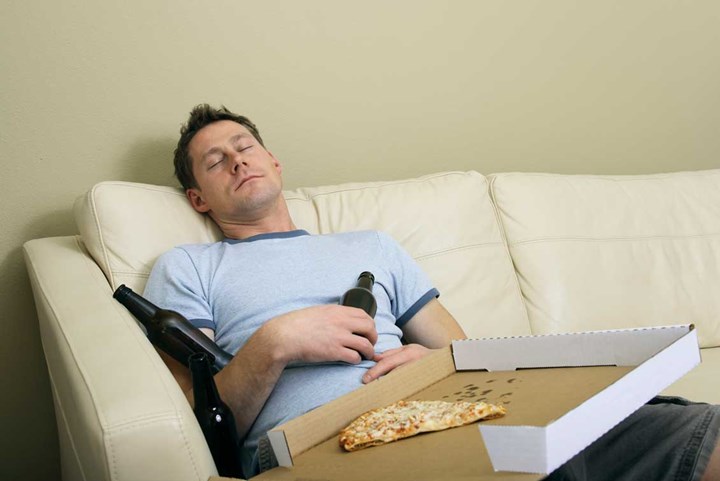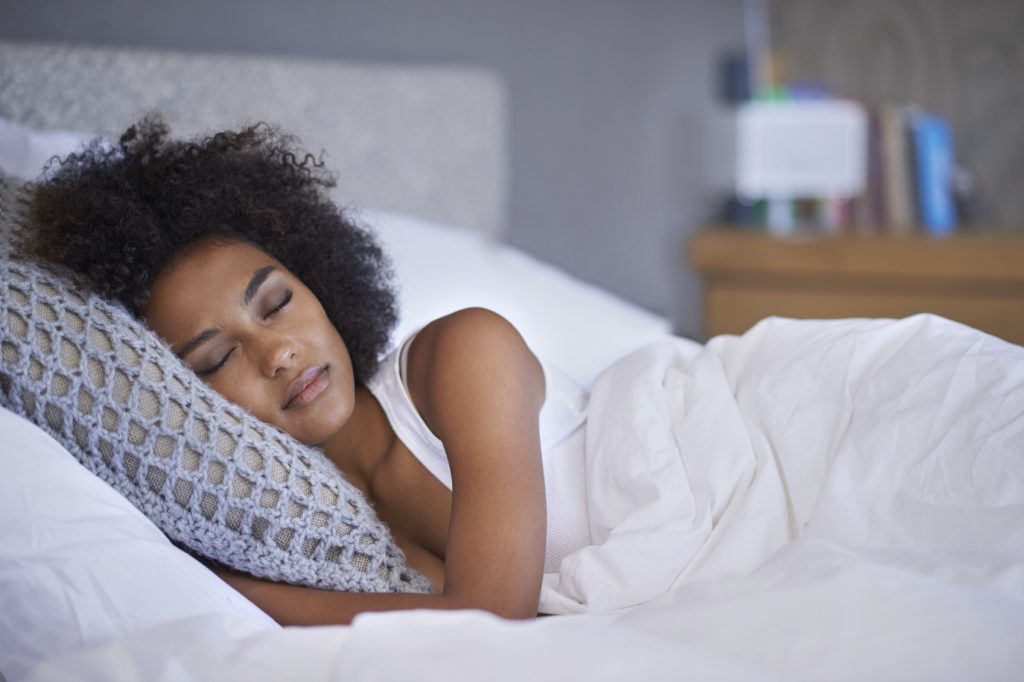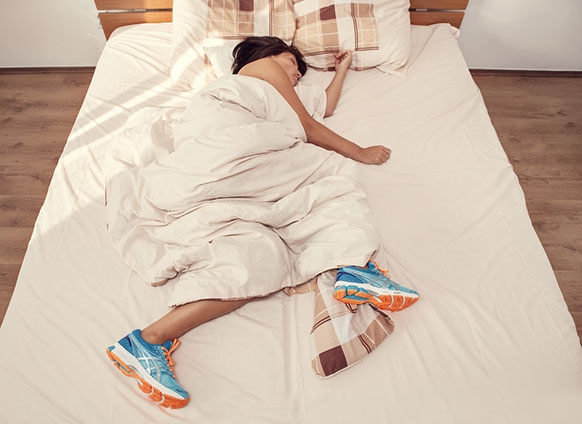While medical practitioners recommend nine hours sleep a night, for most of us, seven hours is a lot. But sometimes even if we manage to get under the sheets early, we still struggle to get any shuteye. With over 20 years experience in the sleep medicine field, Dr. Carmel Harrington shares her top five tips that don’t include counting to 1000 sheep.
1) Eat for sleep
Stay away from heavy meals three hours before bed so the body has time to digest. Alcohol disrupts sleep and so too does caffeine, so if you have trouble sleeping, refrain. Certain healthy foods calm your nervous system and trigger a sleep-inducing hormonal response, helping you rest better at night. These include salmon, yoghurt, cherries and chickpeas. The old remedy of a glass of hot milk is still good advice.
2) Exercise regularly but not within three hours of bedtime
Those who exercise regularly report having the best sleep. However exercising within a few hours of bedtime simply wakes the body up, making it difficult to sleep. So make sure you finish exercising by 7pm.

3) Make sleep a priority
If you are experiencing sleep difficulties and don’t know why, it might be a good idea to start a sleep diary. Noting what you do before bedtime and how many hours sleep you get each night may help with identifying bad sleep habits. A.H. Beard have a free online Six Week Sleep Challenge that can help you understand areas for improvement and keep you on track with achieving sleep goals.
4) Create a sleep sanctuary
Many people suffer from poor sleep due to the state of their mattress and pillow. Your mattress should be giving you the correct support and postural alignment. The bedroom should be dark, quiet and calm. Invest in appropriate bedding for the climate and try to keep noise to a minimum. The optimal temperature for sleeping is around 18 degrees Celsius.
5) Refrain from using technology before bed
Melatonin – the hormone essential for our sleep – is only produced in fading light or darkness. The way it works is the eye detects fading light/darkness and sends the message to our brain to start producing melatonin. After one to two hours of melatonin production we will be ready (and able) to go to sleep. Using technology before bed, with its bright light, will limit melatonin production and make it harder to fall asleep.


